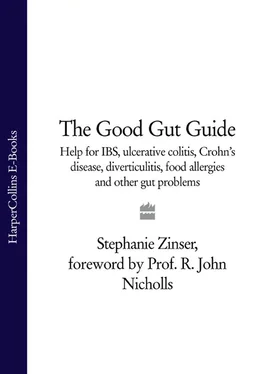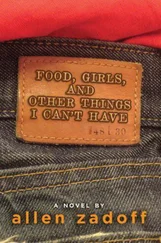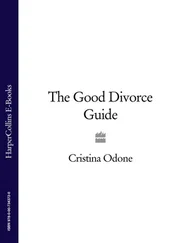It will help patients and anyone else who wants to learn more about intestinal problems and improve their gut health.
PROFESSOR JOHN NICHOLLS
How I Came to Write This Book
When I first started suffering with proctitis in 1987, I was told it was a mild and localized form of ulcerative colitis, which was very unlikely to become serious or ever result in major surgery. Unfortunately, I was one of the unlucky few and 11 years later my entire large bowel was removed during a complex and lengthy operation.
It was very painful but, at the age of 34, I was more concerned about the prospect of wearing a ‘bag’ for the rest of my life. I mistakenly believed I’d have to wear baggy clothes and would never be able to enjoy scuba diving, swimming, or even lying on a beach again. However, I was given an ‘internal pouch’ instead. This involved reconfiguring my intestines to make part of my small bowel into a reservoir for digestive waste, meaning that I could continue to ‘go to the bathroom’ almost as normal. I thought it was great (despite a few practical limitations and the odd bout of ‘pouchitis’) – not only did it enable me to live without self-consciousness, I was finally free of my UC. I was bursting with energy and enthusiasm.
Having spent the better part of 10 years explaining my illness to people, I was amazed at how taboo the subject of bowels was. We seemed to be at the same stage of ignorance and silence that breast cancer sufferers were 30 or 40 years previously – when women were too ashamed to go to their doctor with a breast lump and when they, quite literally, died because of their embarrassment. But look at how all that has changed – with massive health and charity campaigns raising public awareness of this terrible illness.
I wanted to see the same revolution for sufferers of bowel diseases. So, just days after leaving hospital, I made an impulsive call to the Daily Mail ’s Good Health Editor at the time, Rory Clements. Despite having never written for publication before, I offered to write him an article on my experience. Amazingly, he took up my offer and the full-page feature was duly published in March 1998. It marked the start of my efforts to take the taboo out of bowel illnesses.
So why write this book now? For the same reasons I made that phone call. Statistically, you are more likely to be killed by a donkey than not suffer with some gut-related problem at some time during your life. Many gut problems – including bowel cancers – are more easily and more successfully treated when they’re picked up early. Taboos often prevent people from addressing problems until they are just too big and too serious to ignore, by which time it may be too late. Talk destroys taboos. Information saves lives.
I hope this book will help us to destroy the taboo, and enjoy good gut health.
When I was 25 years old I experienced a disturbing symptom – bleeding from my bottom. Because I was then pregnant, I put it down to simple haemorrhoids and thought nothing more of it.
I never suspected that this was the beginning of a decade’s worth of increasingly serious illness that I would face virtually alone, unaided and only vaguely informed. It wasn’t the doctors’ fault – they told me what, medically, I needed to know. And there were support groups, although I tended to notice only the people who suffered far worse than I did. Because of this, I shied away from associating with them – as if the seriousness of their illnesses might somehow be contagious.
Things that go wrong with your guts cause great embarrassment and this in turn makes them frightening. You don’t automatically know who to talk to or what words to use, and when you do seek medical help the resulting procedures can be embarrassing as well as uncomfortable.
For some reason bowel and intestinal disorders have always been viewed as older people’s afflictions, despite the fact that most cases of ulcerative colitis (UC), Crohn’s disease and IBS start during a person’s mid-twenties (or younger) – when many people are single, embarking on relationships, starting families or juggling demanding careers and busy social lives. I’m not sure why this false image has so stubbornly persisted, although I believe it is slowly changing.
As a health writer, I am regularly bombarded by information about new treatments – not just from orthodox medicine, but also from the herbal, dietary and complementary sides. My personal view is that the key to a ‘golden cure’ is not the preserve of any one of these camps. The answer to bowel illnesses is probably (and quite unsatisfactorily for those of us who like things neat and tidy) a complicated mixture of several elements, the proportions and exact ingredients of which we simply cannot isolate today. It’s up to us to look carefully at every possibility, to try whatever we feel may be right for us, and work toward the best possible outcome – good gut health.
And that’s why I’ve written this book – to provide the appropriate information so that the reader can play an active role in achieving good gut health. It isn’t a book that features only a couple of gut problems in great detail. Neither is it a medical encyclopaedia that covers a whole raft of illnesses on a basic level. It is a user-friendly book for anyone who has ever experienced gut problems – and one that discusses them in a way that people understand.
This book looks at all types of intestinal symptoms – like diarrhoea, wind, constipation, nausea, abdominal pain and more – and offers practical solutions for dealing with them. Not just medical solutions, but self-help – including dietary and lifestyle tips, herbal help and a whole range of complementary therapies, from flower remedies to Ayurveda (an ancient Indian system of medicine). This approach is vital. People today are more proactive in choosing their healthcare than ever before and it is important to me that this book strongly reflects the diverse range of options now available.
Having looked at symptoms, the book then homes in on the diseases that are the key culprits of gut trouble and explains, simply but in detail, what these diseases are, what causes them, who they typically affect, what the risk factors are, how to prevent them and what medical treatments are available. Again, I have included practical advice for the patient in terms of self-help, dietary management, alternative treatments and prevention.
Lastly, the book focuses on the person behind the illness. It looks at the effect that chronic or embarrassing illnesses can have on our daily lives, our personalities and our relationships. It offers advice on the practicalities of living a normal life and coping with depression, hospitals, illness and surgery. There is also a large resource section at the back of the book for anyone who wants access to support groups, medical agencies and further information.
SECTION 1
having trouble with your guts?
What it means and what you can do about it
Anything unusual that happens to our guts – like rampant diarrhoea or sudden bleeding – is disturbing. However, such occurrences are not the only reason we visit our doctor with a gut-related problem. Some common conditions like constipation are often mild, but they may gradually worsen until we become concerned enough to seek medical advice. You can just as easily need to see your doctor for a chronic problem as an acute one.
There are hundreds of medical problems – serious as well as minor ones – that cause ‘gut-related’ symptoms such as diarrhoea, constipation or mild stomach pains. This makes symptoms tricky to assess. How do we know when they are serious enough to warrant medical advice? Very few people get a thrill from visiting their doctor to be told that they are making a fuss but, on the other hand, what would happen if we ignored something serious?
Читать дальше












